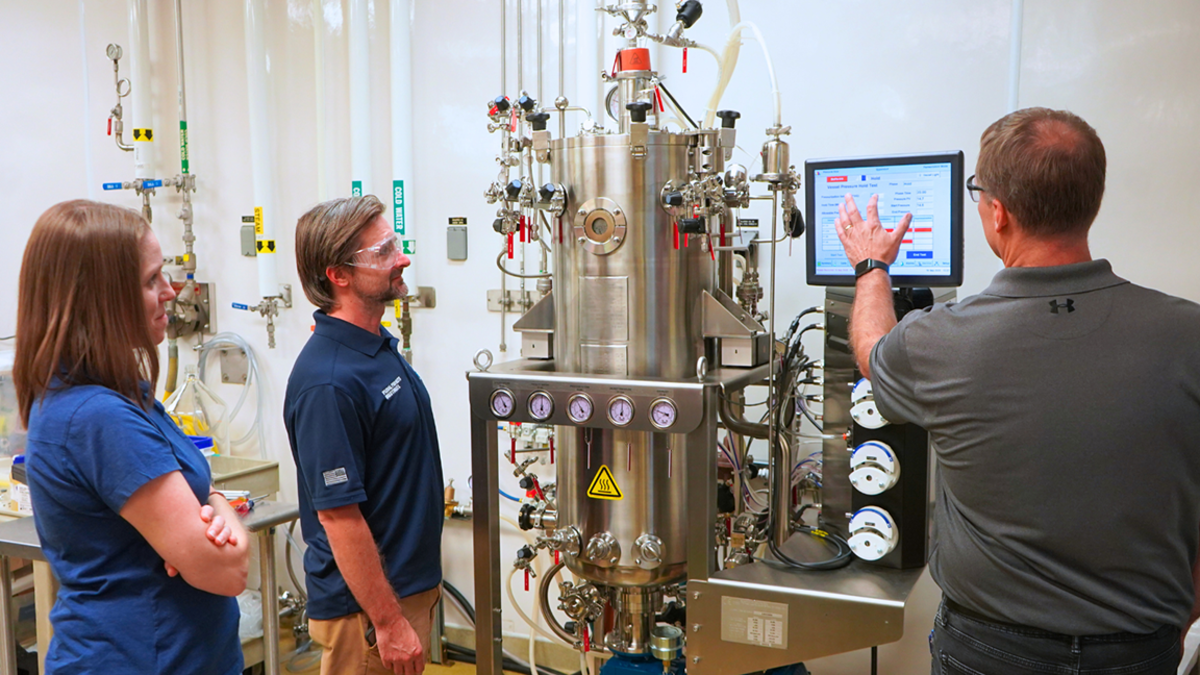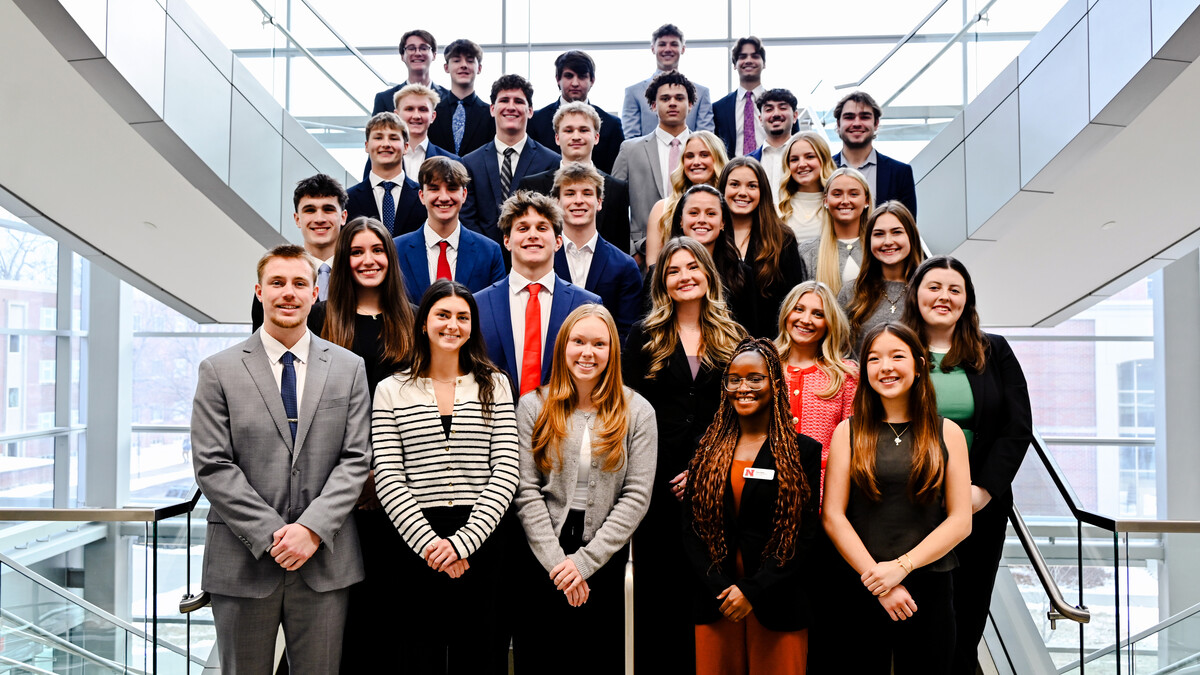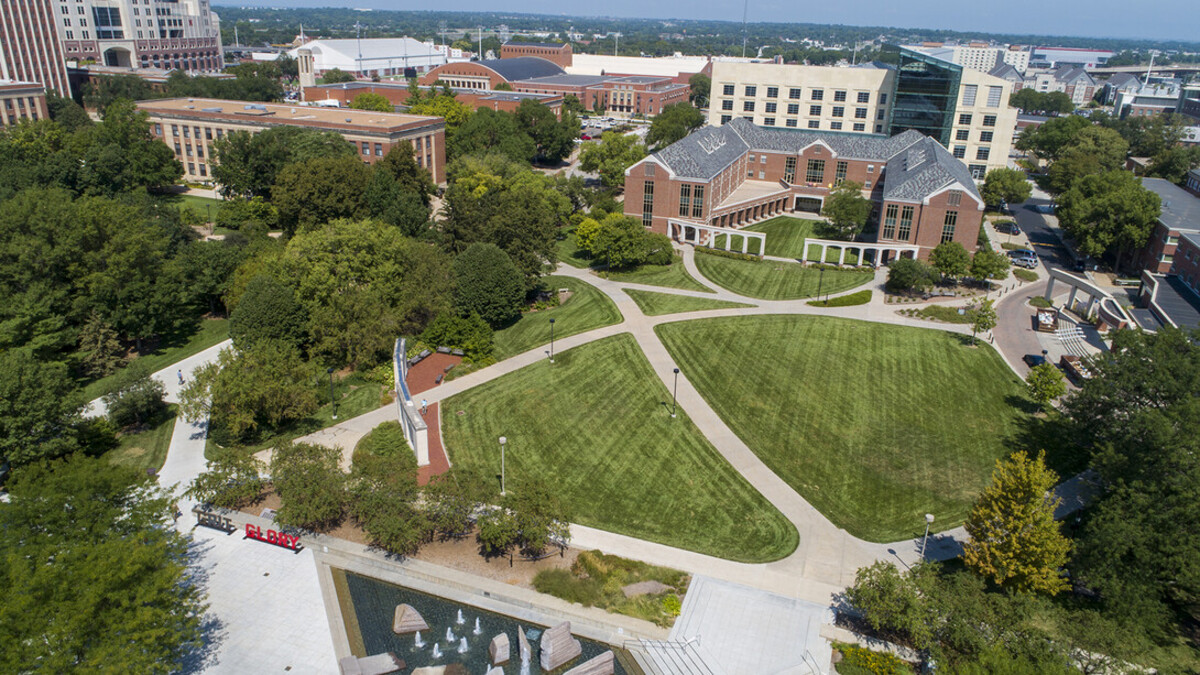
The first of two sets of budget-reduction proposals at the University of Nebraska-Lincoln would represent nearly $3.8 million.
The first set of proposed reductions are focused mainly in the Office of the Chancellor, the Office of the Executive Vice Chancellor and Chief Academic Officer, and the Institute of Agriculture and Natural Resources. They include shifting costs for bus service to and from Nebraska Innovation Campus from state resources to fee revenues, a consolidation of communications and marketing at the university, and reducing budgets for summer school, the Rural Futures Institute and utilities.
On Nov. 15, administrators presented the first set of proposals to the university’s Academic Planning Committee. The committee – a university-wide group that formulates and recommends academic and planning goals and initiatives for the institution – works with the administration when programmatic cuts and reallocations are being considered.
The current proposed budget reductions are set apart from, and in addition to, the Budget Response Initiative process at the four-institution university system level.
A second set of proposed budget reductions will be presented and discussed Dec. 6. The university’s process to reduce its Fiscal Year 2018 and 2019 budget by roughly $8.5 million, as part of general reductions throughout the overall university system, began in September and is expected to be completed in early spring.
The APC will hold public hearings to receive feedback from the university community before making recommendations on the proposals. See the current budget timetable.
The proposals presented on Nov. 15 are:
Nebraska Innovation Campus bus service subsidy ($106,333): Transit Services are funded from faculty, staff and student parking fees and student University Program and Facilities Fees. The introduction of bus service to NIC was partially subsidized with state funds. The university and the Institute of Agriculture and Natural Resources contribute $319,000 to provide partial support for bus service to and from NIC and City and East campuses. This proposed reduction shifts costs from state resources to fee revenue from faculty and staff parking permits ($1 added per month) or University Program and Facilities Fee Transit Fees ($3.03 added per semester) by the end of the third year. This is the first year of a three-year phase-out period, amounting to $106,333 annually between the university and IANR, and a phase-in of the fee increases.
Communications and marketing consolidation ($250,000): To improve return on communication and marketing investments, the university is aligning communication and marketing professionals to make better overall use of resources, increase talent management and reduce redundancies. The savings will result from restructuring and captured vacant positions through June 30, 2019.
Pooled salary funds ($48,000): Unencumbered pooled salary dollars in chancellor’s budget.
Office associate ($51,416): Eliminate a vacant office associate positon in the Office of the Chancellor.
Reallocate state-appropriated-funded staff to fund with Technology Fee ($523,540): The revenue from the Technology Fee will be further leveraged by assigning salaries for staff who are fulfilling the Technology Fee proposal actions. These will be in the offices of the University Registrar and Institutional Effectiveness and Analytics.
Reallocate state-appropriated-funded staff and operations to fund with Online Course Fee ($1,245,485): The revenue from the Online Course Fee will be leveraged by assigning salaries for staff and operating budgets that are fulfilling the Online Course Fee proposal actions in the Office of Online and Distance Education.
Summer-school budget reduction ($337,763): The increased strategic use of summer school funds allows for a budget reduction without significant impact to the quality summer school programming currently offered to students.
Reduce IANR greater Nebraska utility budget ($150,000): Annual utility expenditures for utilities at IANR research, teaching, and extension centers in greater Nebraska are forecasted to be less than previously budgeted.
Vacate Northeast Community College Lifelong Learning Center ($127,328): With the recent creation of the Eastern Nebraska Research and Extension Center, program delivery would be coordinated for constituents across eastern Nebraska without retaining this space in Norfolk.
Reduce IANR self-insurance budget ($125,000): Annual self-insurance expenditures are forecasted to be less than previously budgeted.
Eliminate IANR facility renovation permanent budget ($40,925): In recent years, the majority of funding for facility renovation and deferred maintenance needs has been shifted to sources other than permanent state-appropriated budget.
Reduce Rural Futures Institute budget ($500,000): RFI will reduce planned expenditures for programs to help the university in meeting its budget.
Eliminate Virology Center Program of Excellence budgets ($264,750): Two previously approved but not-yet-filled faculty positions were scheduled to be hired to the Nebraska Center for Virology. These position searches have been closed.







